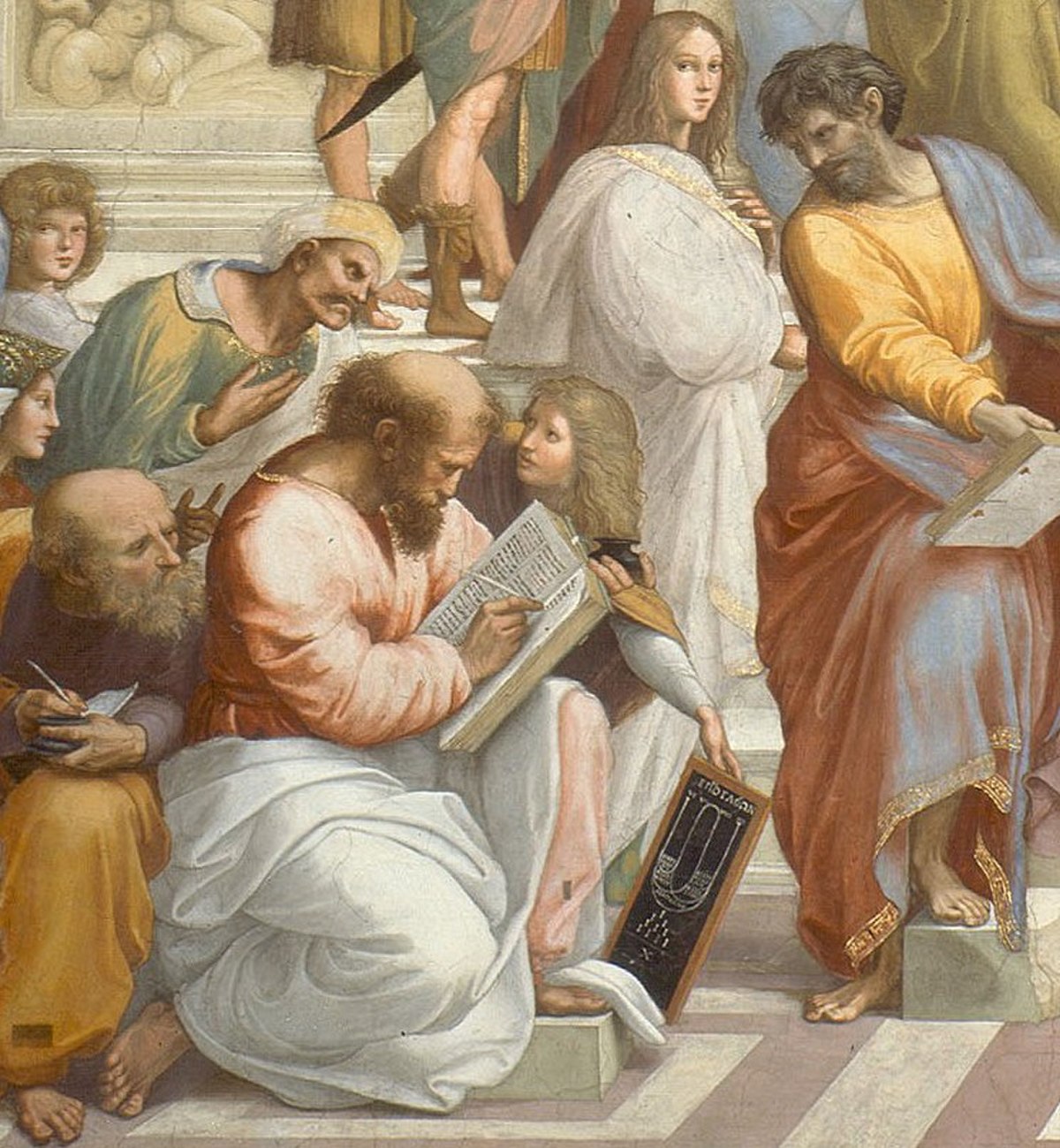
Pythagoras
Samos, GreeceAn equally enigmatic figure is Pythagoras of Samos (c. 580–500 BCE), who supposedly visited Egypt and Babylon,[24] and ultimately settled in Croton, Magna Graecia, where he started a kind of brotherhood. Pythagoreans supposedly believed that "all is number" and were keen in looking for mathematical relations between numbers and things.[25] Pythagoras himself was given credit for many later discoveries, including the construction of the five regular solids.
Almost half of the material in Euclid's Elements is customarily attributed to the Pythagoreans, including the discovery of irrationals, attributed to Hippasus (c. 530–450 BCE) and Theodorus (fl. 450 BCE).[26] It was the Pythagoreans who coined the term "mathematics", and with whom the study of mathematics for its own sake begins. The greatest mathematician associated with the group, however, may have been Archytas (c. 435-360 BCE), who solved the problem of doubling the cube, identified the harmonic mean, and possibly contributed to optics and mechanics.[26] Other mathematicians active in this period, not fully affiliated with any school, include Hippocrates of Chios (c. 470–410 BCE), Theaetetus (c. 417–369 BCE), and Eudoxus (c. 408–355 BCE).
